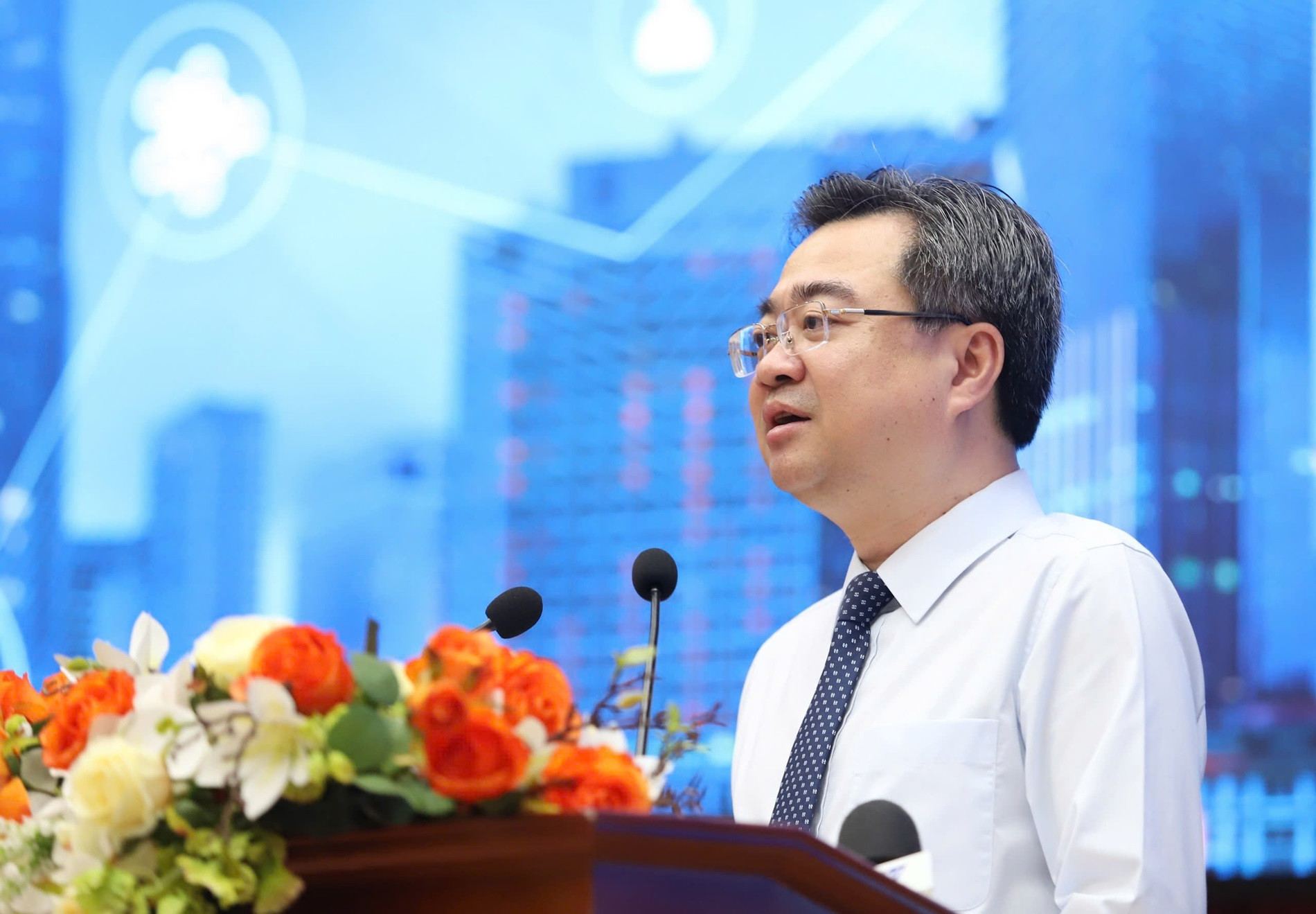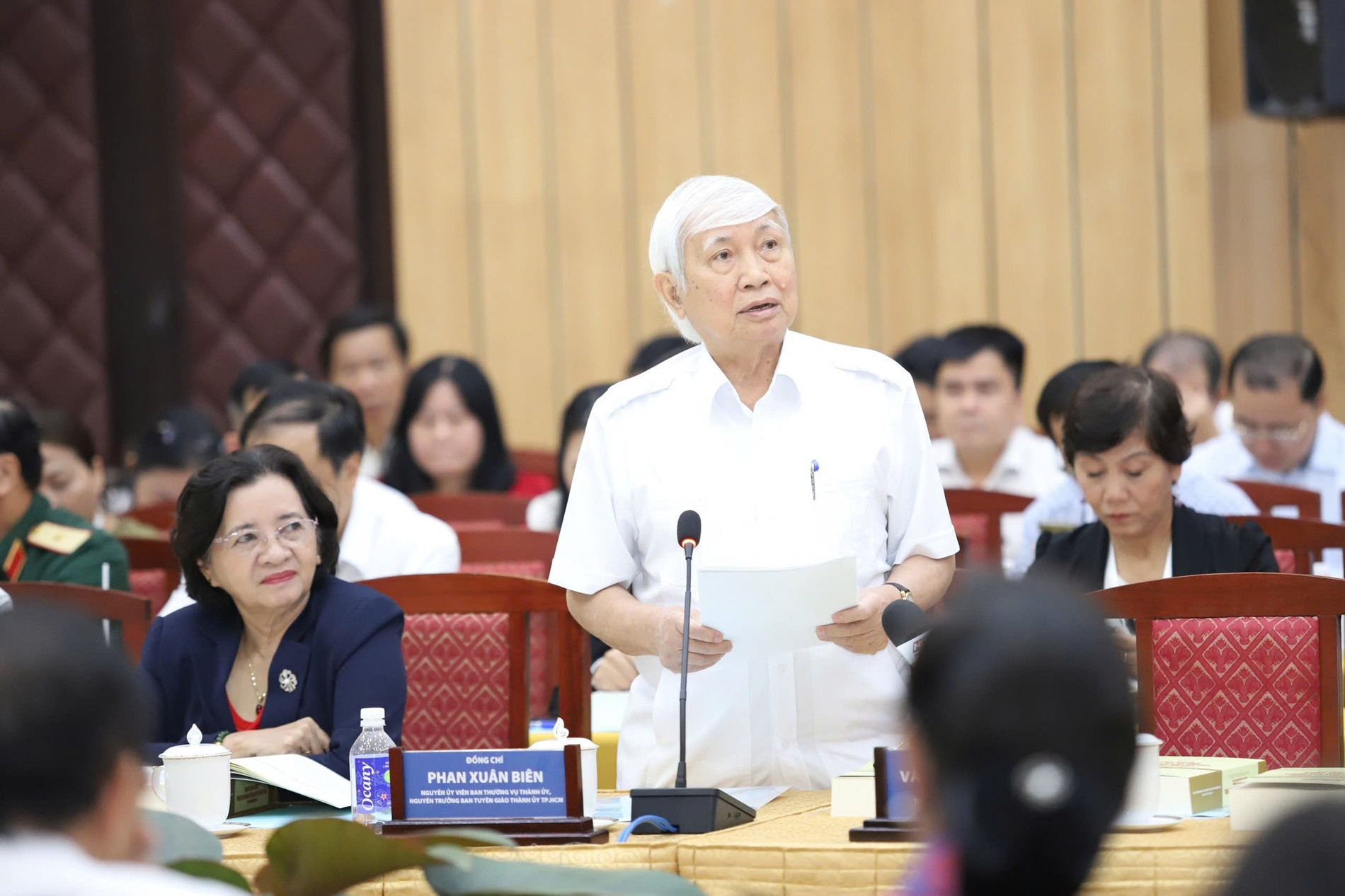Nguyen Thanh Nghi, Standing Deputy Secretary of the Ho Chi Minh City Party Committee, affirmed that with 50 years of proud achievements, the city is filled with aspirations to rise and shine in the new era.
Celebrating 50 years of progress and unity

On the morning of March 25, the Ho Chi Minh City Party Committee, People’s Council, People’s Committee, and Vietnam Fatherland Front Committee of Ho Chi Minh City held a scientific conference titled "Ho Chi Minh City - 50 Years of Building, Defending, and Developing". This event is part of the commemoration of the 50th anniversary of the liberation of the South and the reunification of the country.
In his opening remarks, Nguyen Thanh Nghi emphasized that 50 years ago, under the leadership of the Communist Party of Vietnam, the people of Saigon - Cho Lon - Gia Dinh, together with the entire nation, achieved the historic victory of the Spring Offensive on April 30, 1975, unifying the country and ushering in a new era of unity and renovation.
He expressed the city’s immense pride in bearing the name of President Ho Chi Minh, considering it both a great honor and a profound responsibility to safeguard and develop the socialist Republic of Vietnam, realizing the vision of a prosperous, democratic, fair, and civilized nation.
Overcoming challenges and paving the way
After April 30, 1975, Ho Chi Minh City faced numerous difficulties, including the aftermath of war, hostile forces both domestically and internationally, and a volatile global situation. Additionally, limited experience in economic, social, and urban management posed challenges in the post-liberation period.
In the first decade after liberation (1975 - 1985), the city overcame immense challenges to maintain political and social stability, heal the wounds of war, and restore the economy.
Entering the period of comprehensive renovation following the 6th National Congress of the Communist Party of Vietnam in 1986, the city made significant efforts to rise, develop production, and affirm its role as the country's economic powerhouse.
“The dynamic practices in Ho Chi Minh City have provided practical lessons on innovative management mechanisms, contributing to the formation of central policies,” Nghi said.
Milestones of development and heroism

Associate Professor Dr. Phan Xuan Bien, Vice Chairman of the Vietnam Association of Historical Sciences, highlighted two major milestones since reunification: officially adopting the name Ho Chi Minh City in 1976 and being awarded the title of "Heroic City" in 2005.
He noted that the title symbolizes both an honorable recognition from the Party and State and a powerful motivation for the city to overcome obstacles and achieve significant victories.
Bien also reflected on the challenging period from 1975 to 1986, when economic difficulties, high inflation (up to 740%), and widespread hardships led to mass migration from the city and social instability. Yet, during these trying times, city leaders displayed resilience and determination, taking bold steps to maintain stability and ensure daily sustenance for the population.
These initiatives, once criticized as "breaking the rules," later became recognized as groundbreaking innovations, laying the foundation for the national renovation process marked by bold, creative, and responsible decision-making.
Unity and innovation as core values
Former Chairman of the Vietnam Fatherland Front Central Committee, Huynh Dam, emphasized four core values - "unity, initiative, creativity, and breakthrough" - as the foundation of Ho Chi Minh City's achievements over the past 50 years.
He pointed out that daring to break conventions not only helped the city resolve its own challenges but also offered valuable experiences for the central government in promoting national development.
Dam stressed that to continue progressing, the city must reform administrative structures and strengthen the political system, with the Vietnam Fatherland Front playing a pivotal role in uniting the community and fostering capable leadership.
With over 100 presentations and numerous speeches delivered at the conference, the discussions focused on harnessing the historical value of the 1975 Spring Victory to build a civilized, modern, and compassionate Ho Chi Minh City, embodying the principle of "Ho Chi Minh City for the entire country, the entire country for Ho Chi Minh City."
Ho Van